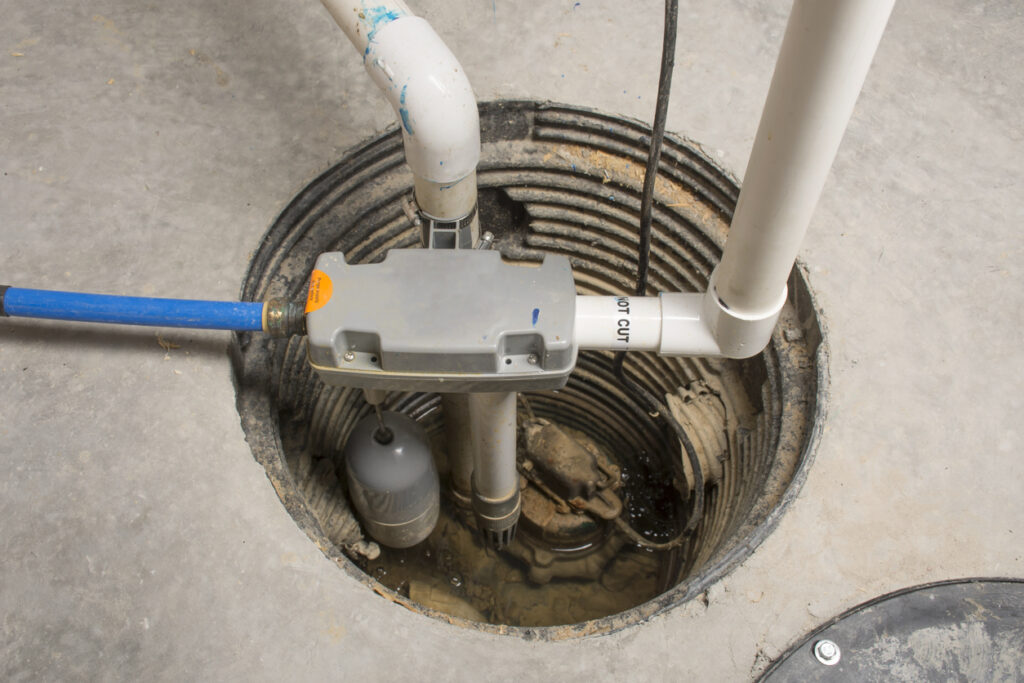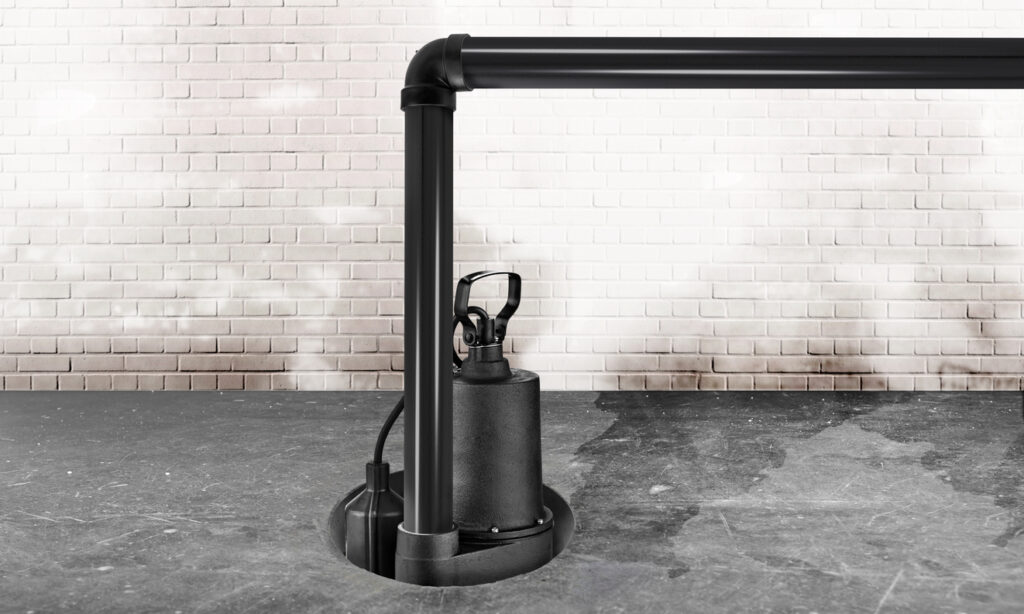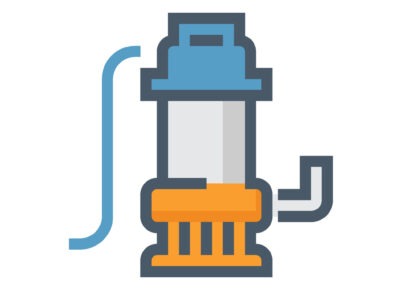There are a few types of sump pumps for different purposes, but what property owner is really interested in being super knowledgeable about a pump that sits in the basement. Most property owners want to trust their professional to inform them and guide their purchases. Some unbiased knowledge is important for informed decisions of the consumer for the product and service. With no expectations how can a consumer make a wise decision?
Types of Sump Pumps
There are a few basic types of sump pumps. The most common type of pump is one that operates on electricity. There are two types of these pumps available. There is a submersible pumps that sits down inside the basin of water or a pedestal pump that is a separate pump that sits outside the pit connected by a hose or impeller type device. A submersible type pump typically runs quieter, saves space, and tends not to clog. The downside to the submersible type pump is that the motor sits in water so when seals fail these pumps are exposed to water destroying them. Submersible pumps are the most common. The pedestal type pump typically last longer, but runs louder and takes up slightly more space. These would be plugged into your buildings standard 120V 3 prong outlet. As long as the electricity is functioning this pump will save the basement from flooding and manage water effectively. What happens when the electricity goes out or the pump clogs?


Emergency activated back up sump pumps
There are two types of emergency activated back up sump pumps. Battery-operated back up sump pumps and Water -powered sump pumps. These pumps will activate in case of emergency. If the power goes out and the primary pump is not operating, One of these pumps will automatically kick in and take over pumping the water. Typically there is a float system designed to control the water level and the pump in the pit. If this float trips the back up pump is activated once the water level rises this far.
Battery-back up pumps
Battery-back up pumps are great for certain applications. When a home is not connected to a city provided water system a battery back is the only option for a back up pump. The downside to this pump is that when the battery runs out, the pumps stops. The battery would need to be replaced for the pump to continue functioning, and having many batteries on hand is costly. Depending how often the pump activates, depends how fast the battery dies. This can vary to every situation.
Water-powered sump pumps
Water-powered sump pumps get connected to a home with city water only. They are the best option when public city water service is available. Typically the public city water never looses pressure even during power outages. Connecting this sump pump to a domestic waterline in the home ensures the pump will always work.There is no costly battery to be replaced ever. It also can function continuously without running out of power like a battery does. This option is best from homes with city provided domestic water.
Maffet Plumbers of South Jersey can install or repair all types of sump pumps. Contact us to learn more.

